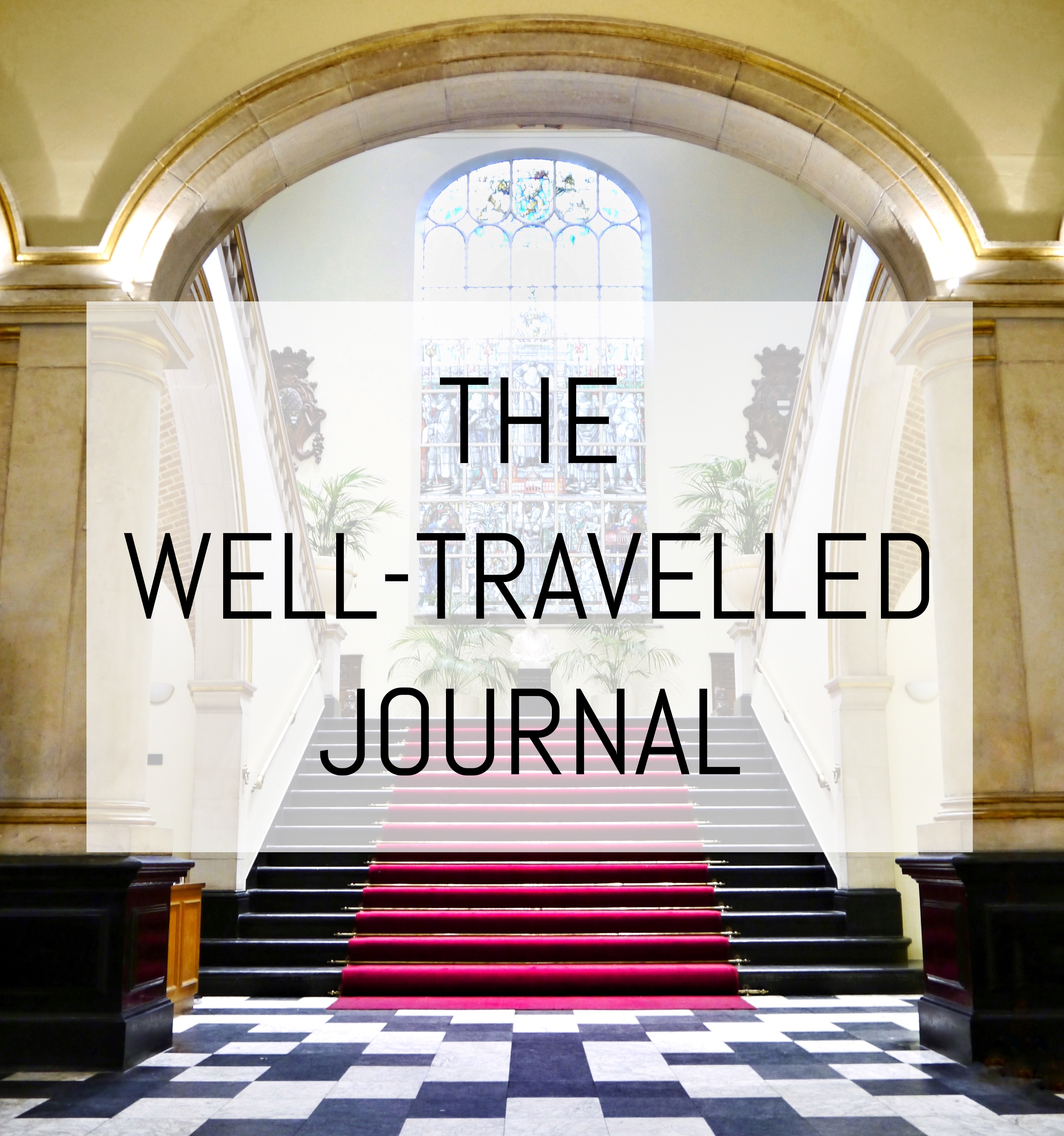What is an Erasmus Mundus Master’s Degree?

After my last couple of blog posts from Groningen, which mentioned the degree programme I’m on and its slightly unusual structure of moving to 3 or more different countries in 2 years, I’ve had a lot of questions about the programme by others who are tempted by the idea! My Master’s degree follows a relatively unknown structure that not many people know about, but it’s such a great idea that I thought I’d explain it in a bit more detail. First off the name: it’s called an Erasmus Mundus Master’s Degree.
Is it like Erasmus?
You’ve hopefully already heard of Erasmus… If not, then you’re missing out! Erasmus is an incredible student exchange programme run by the European Commission (an EU institution) that allows Bachelor’s students across Europe to spend a semester or a full year of their degree studying at another university in Europe. It encourages and allows students to live abroad, meet other people from all over Europe, understand another culture and broaden their horizons. Not only that, but the EU gives students an Erasmus grant to help them afford it, which varies from uni to uni, but when I did my Erasmus semester in Córdoba back in 2010-11 it was roughly €350/month. It usually also includes a free course in the language of that country. You can also do Erasmus work placements, such as the 6-month internship I did at Armani in Italy as part of my Third Year Abroad, and you still receive the Erasmus grant. I adored my whole Bachelor’s degree, but I have to admit that my Erasmus year was by far the best year! You can do an Erasmus both at Bachelor’s and Master’s level, although only if your Master’s course is long enough and allows it (which is normally not the case in the UK as they’re only 9-12 months long).
How does the Erasmus Mundus Master’s Degree differ from Erasmus?
The principle is the same as the normal Erasmus: the EU is encouraging Master’s student mobility. But Erasmus Mundus takes it to another level as you study for a Joint or Double Master’s Degree from a consortium of universities that all offer the same course, and you often move country every single semester. There are about 100 Erasmus Mundus courses to choose from (here’s the full list) and they range from Archeology, to Economics, to Global Studies, to Human Rights, to Journalism, to Law, to Migration, to Neuroscience, to Nuclear Physics, to Viticulture and Enology (which is basically a degree in wine!). There’s literally everything there.
Each course is organised by a group of universities (a ‘consortium’) in different European countries and you apply to each consortium as if it were a normal Master’s application, with the added step of choosing which of the universities you want to study at. In my case, the Euroculture consortium is comprised of 8 universities in 8 European countries from (see my latest blog post for details about each one!) and I chose Groningen in the Netherlands, as it has a good academic reputation internationally and is the co-ordinating centre of the consortium. But I could have chosen to start at any of the 8 universities, and I would receive basically the same tuition and follow the same subjects (with some small variation based on the academic specialism of the individual university).
The difference between this course and the normal Erasmus is that mobility is a fundamental part of the degree, so everyone on my course moves to a different university every semester over the two-year course. And then in our third and fourth semesters, we move again!

Can you study outside of Europe too?
In addition to the European universities, many consortiums also have partner universities outside of Europe where you can also spend a semester. In my case the Euroculture course offers a semester in India, Japan, Mexico and the US. But for another Master’s course I was offered a place at, the MA in Global Studies, their non-European partner universities were incredible: Cape Town, Sydney, California, Shanghai and two others in India and Canada! Many Erasmus Mundus courses (mine included) also give the opportunity to replace one semester with an internship or work placement, which can be done anywhere in the world.
Who would suit the Erasmus Mundus programme?
If you’re quite a homely person and don’t like moving, then this probably isn’t the course for you… But on the other hand, if you want to experience living in 3 or 4 different countries in a couple of years, want to learn about other cultures and meet people from all over the world, then I literally don’t know of any more international course! Here’s everyone from my course in Groningen: 24 of us in total with 13 different nationalities.
What qualification do you get?
The universities that offer the Erasmus Mundus courses are all bona fide, well-established and reputable universities and thus the degree you get at the end is also a bona fide Master’s degree. The only difference is that instead of a standard Master’s degree from one university, you receive either a Joint or a Double Master’s degree (depending on the combination of universities you choose to study at). For a Joint Degree, this means that your degree certificate and transcript will show all your classes at all the various universities on one page. For a Double Degree, this means you receive two separate certificates and transcripts. But both are equivalent to a full Master’s degree (and if anything, I think it sounds a bit better to say ‘double degree’, don’t you?).
What financial support is there?
In the beginning of the Erasmus Mundus programme some 10-15 years ago, there were plenty of scholarships, and it is still possible to apply for a full scholarship to cover tuition and living costs for the two years. These scholarships are obviously highly coveted and very competitive, and it appears that there are fewer and fewer available since the financial crisis.
But despite that, there are a number of other Erasmus grants available. Firstly, all European students on my course receive an EU waiver of €2,500 off our tuition costs. Secondly, in my second and third semesters I should be eligible for an Erasmus or Marco Polo grant similar to the one I received back in 2010-11 of c.€300/month (it’s not guaranteed but highly likely). And thirdly, there’s a university fund in Groningen through which I can apply for a further €400 or €1,000 grant.
Would I recommend Erasmus Mundus?
I’m only 6 weeks into my two-year course, so I can’t really answer this question yet! However, what I’ve seen so far of Erasmus Mundus is really impressive and I’m really happy with my course. The fact that I’m actually encouraged and supported to travel and move to different countries, and that I’m surrounded by other students who are all equally passionate about discovering new places and cultures, means I feel like I’m in my element. So yes, so far, I would definitely recommend it.












Hi I hope you’re doing well, could you please share an update regarding your Erasmus mundus experience now that it is finally over I assume, I’m sure a lot of students including me that are trying to find these opportunities would be very grateful if you could share an updated article about the different aspects of this experience. I look forward to your positive response
Thanks
LikeLike
Hi Virginia, I hope you’re doing well. I’d like to request if you could please update this article and put light on your experiences during this program with some fresh details. A lot of students who aspire to join this program including me would really be grateful for this. I look forward to your positive response.
Thanks
LikeLike
Hi Ejaz, I’m not sure I can update the post since I’m not up-to-date on all the latest details on the Erasmus Mundus programme, however if you’re interested in the specific Master’s I did, then please do explore the ‘Study Abroad’ part of my blog, as you’ll find lots of blog posts and information about the programme there!
LikeLike